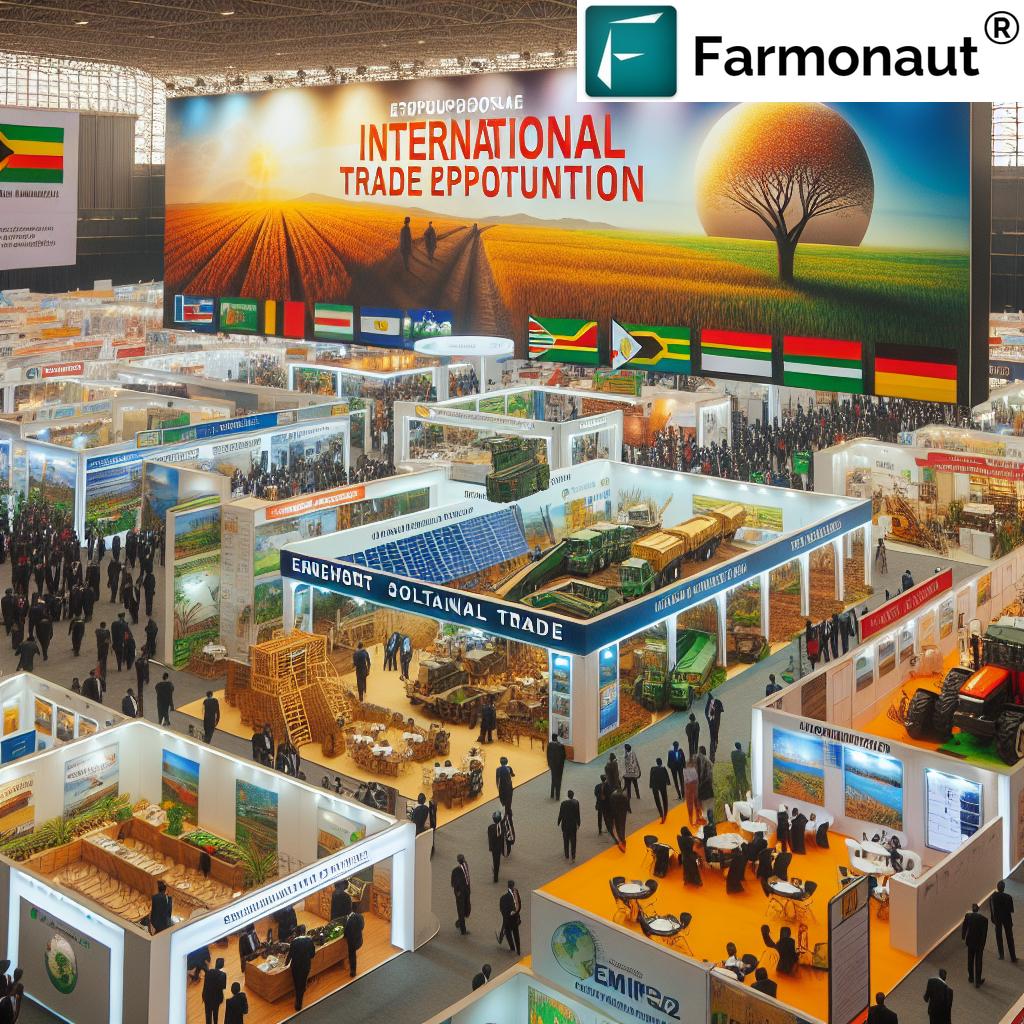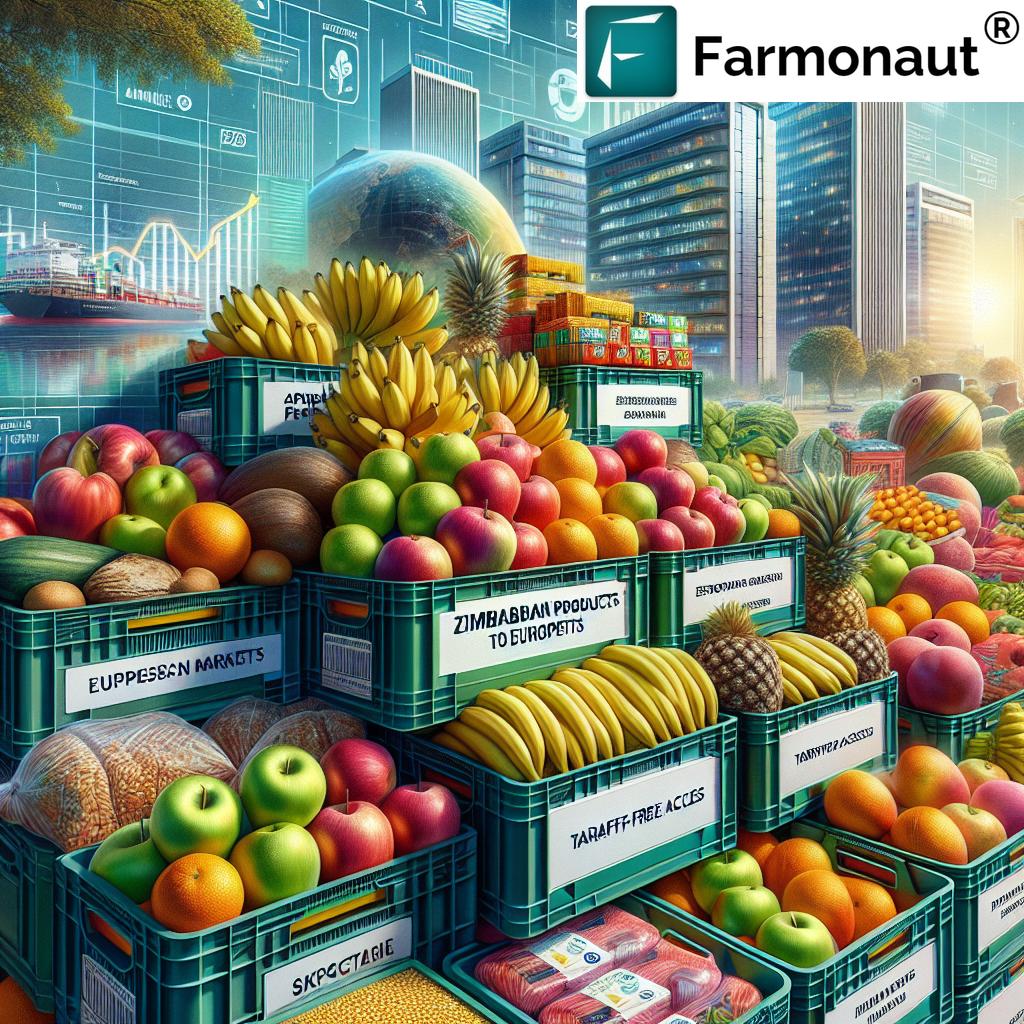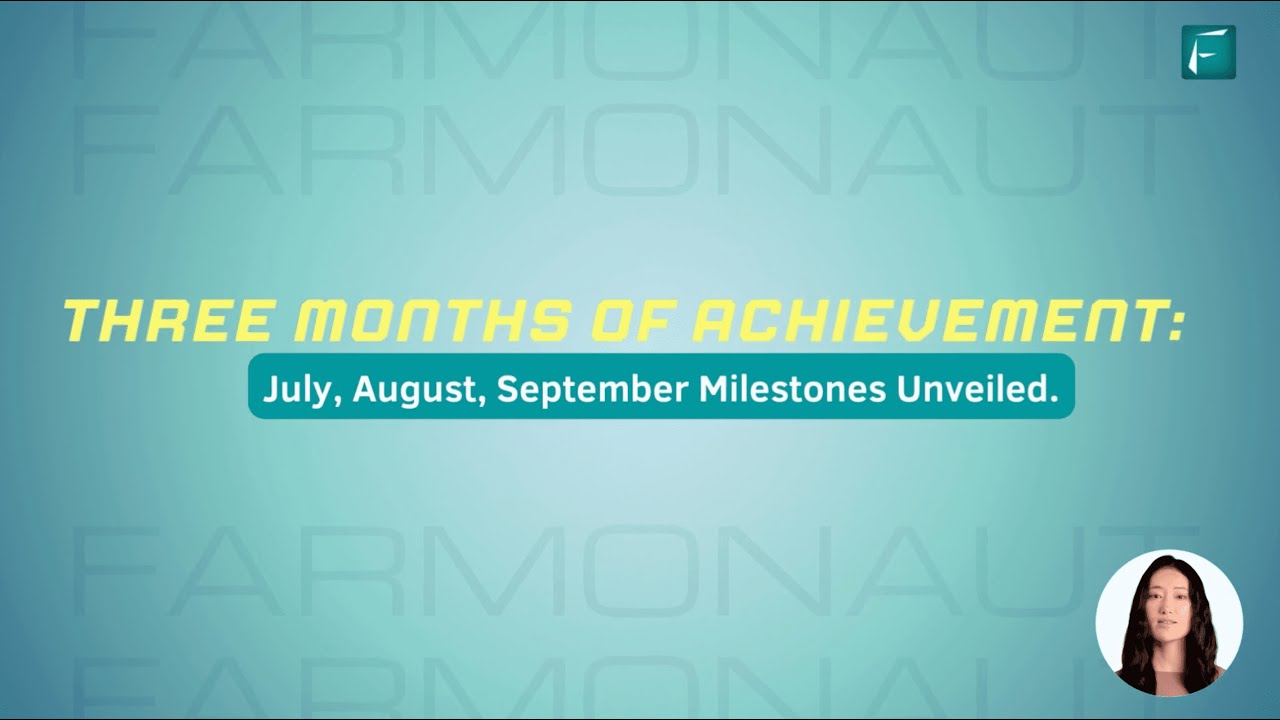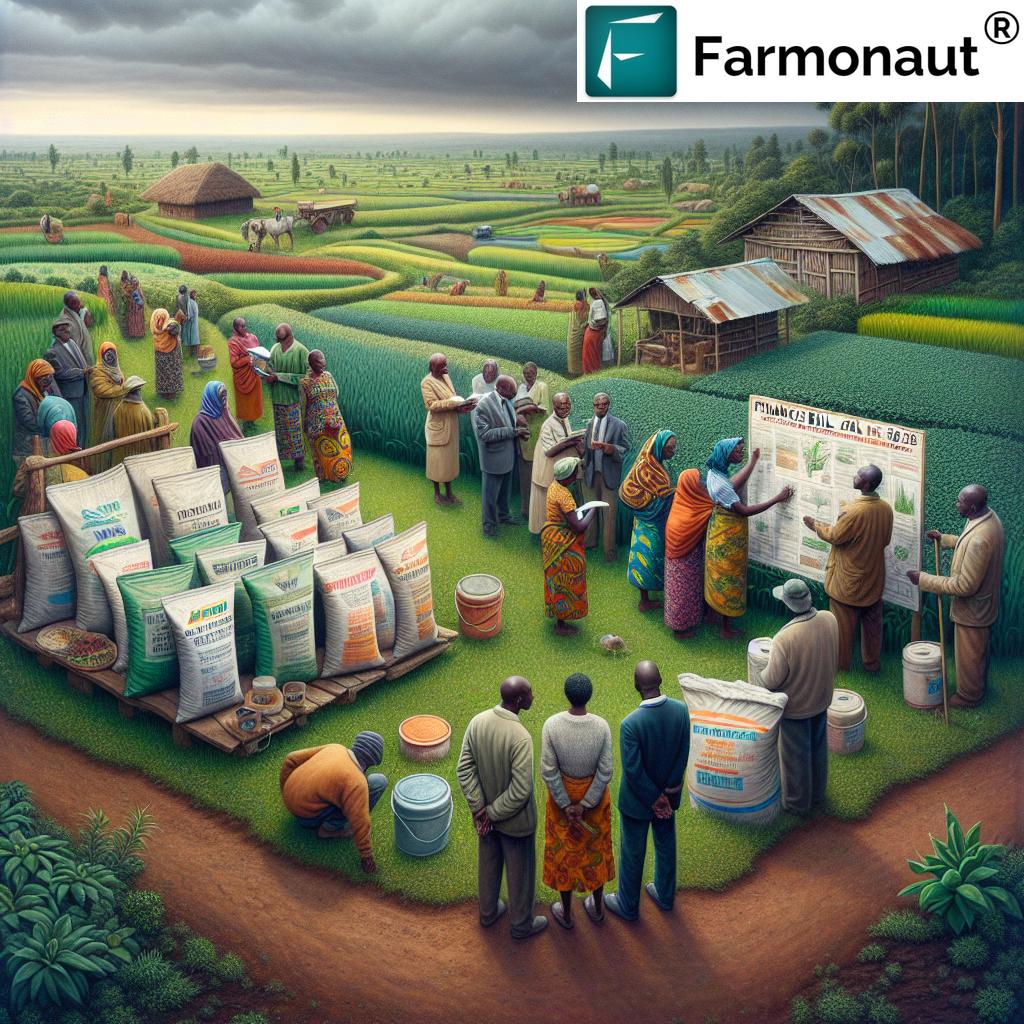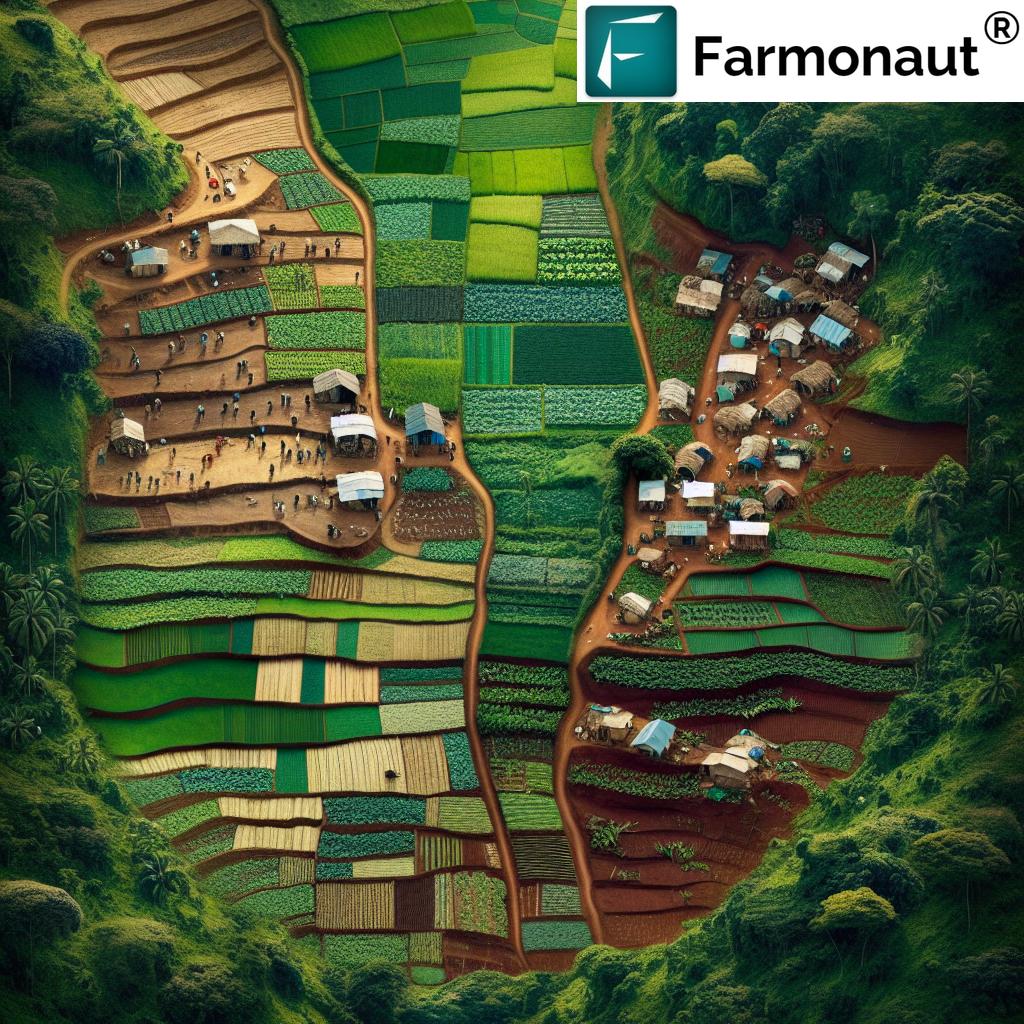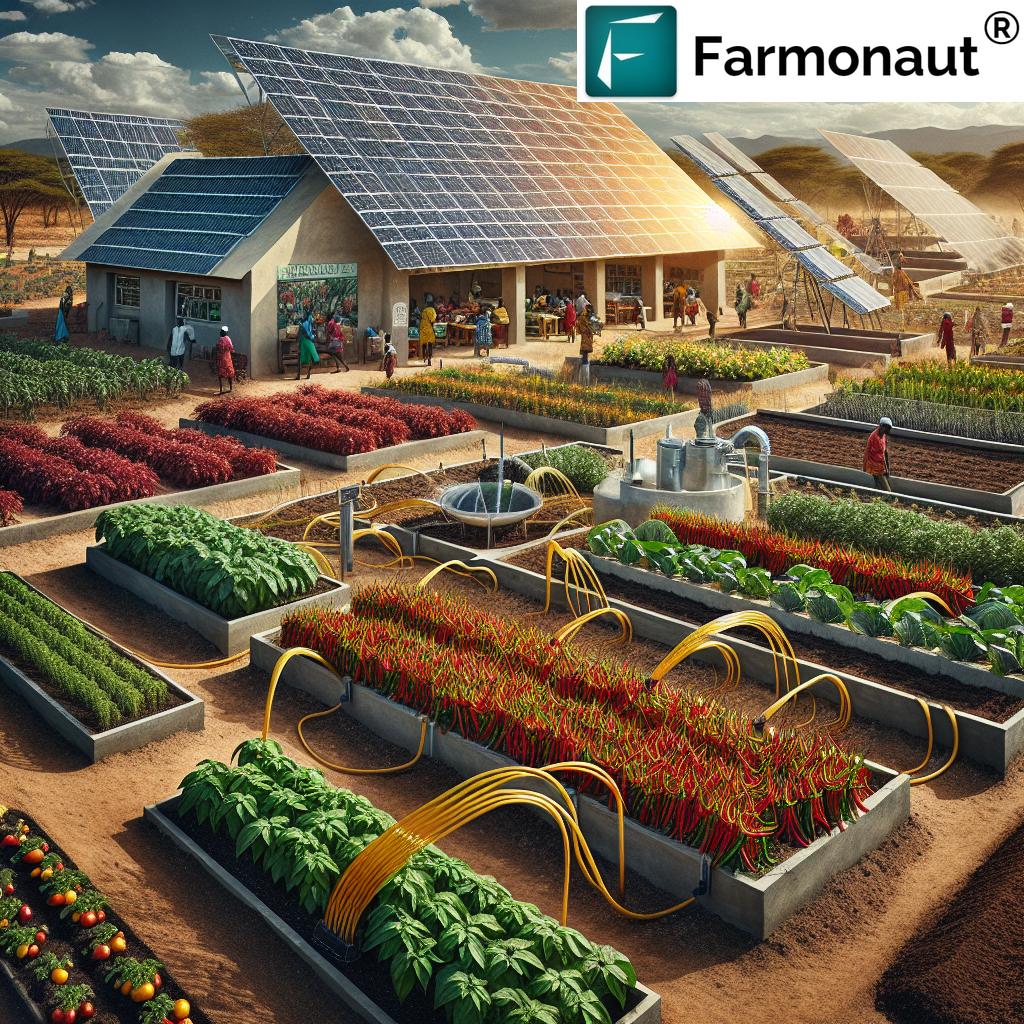Zimbabwe International Trade: 7 Powerful Trends Driving Export Growth
“Zimbabwe’s exports to the UK surged by 15% in 2023, reflecting robust international trade growth.”
Overview: Zimbabwe International Trade in Focus
Zimbabwe, a country blessed with rich natural resources, vast human capital, and strategic location within Southern Africa, is at the forefront of emerging international trade opportunities. As we witness fundamental shifts in the global economy, driven by sustainability, technology, and new market alignments, the role of Zimbabwe in export growth is more pivotal than ever.
The nation’s renewed focus on value addition, export competitiveness, and sectoral diversification are yielding tangible results. Notably, the 2023 surge of 15% in exports to the UK stands as compelling evidence of the robust growth in Zimbabwe international trade. Key initiatives from leading trade partners—especially the UK and EU—coupled with strategic exhibitions at the Zimbabwe International Trade Fair (ZITF) in Bulawayo, are fostering fresh export opportunities for local businesses, transforming the country’s economic landscape and amplifying investment in crucial sectors such as agriculture, energy, and manufacturing.
“Over 200 companies showcased investment and energy solutions at ZITF, highlighting Zimbabwe’s expanding export market potential.”
The Strategic Role of ZITF in Zimbabwe’s Export Growth
Every year, the Zimbabwe International Trade Fair in Bulawayo emerges as a critical nexus for policy makers, businesses, investors, and development partners. ZITF’s 2024 edition—run under the transformative theme “Industrialisation: Crafting an Integrated Landscape”—showcased more than 200 local and international companies unveiling new investment models, energy innovations, and trade facilitation systems. These efforts not only enhance Zimbabwe international trade visibility but also connect local businesses to global markets.
- Highlighting Export Opportunities: ZITF offers a platform for Zimbabwean companies to present their products and services, bridging local offerings with international markets.
- Policy and Investment Dialogues: With leaders and investors from across Africa, the UK, and the EU engaging in high-level dialogue, ZITF is not just a trade show; it is an innovation and investment incubator.
- Driving Sustainable Growth: The integration of renewable energy solutions, sustainable agriculture, and industrial technology is now at the heart of ZITF, aligning with sustainable development in Zimbabwe.
These attributes cement ZITF’s position as a springboard for export growth, sectoral transformation, and long-term economic development.
Executive Summary: Export Opportunities and Investment Trends
The UK government, through the British ambassador Pete Vowles, outlined clear commitment towards doubling trade with Zimbabwe, providing local exporters with tariff-free access and backing over a billion-dollar investment pipeline. There is strong emphasis on empowering small-scale farmers, delivering loans for machinery acquisition, incentivizing clean energy ventures (notably solar), and promoting two-way investment relationships—helping Zimbabwean companies to expand abroad while drawing expertise and capital back home.
At the same time, influential voices in Zimbabwe, such as political and corporate leaders, emphasize the need for an enabling government environment, combating corruption, and fostering good governance for economic growth. The rising export of Zimbabwean peas to European markets and the sustained focus on agriculture position the country as a leader in regional food security and international agri-exports.
Trends Impact Table: Zimbabwe International Trade
| Trend | Estimated Export Growth (%) | Major Target Market(s) | Primary Industry Sectors Affected | Sustainability Impact |
|---|---|---|---|---|
| Export Diversification & Market Reach | +10–12% annually | UK, EU, Africa | Agriculture, Manufacturing, Services | Medium |
| UK Market Expansion & Tariff-Free Access | +15% (2023 data) | UK | Agriculture, Mining, Textiles | Medium |
| Investment in Zimbabwean Agriculture | +9% (projected) | EU, UK, Africa | Agriculture, Agro-processing | High |
| Renewable Energy Investment | +6% in energy exports | Regional (Africa), EU | Energy, Manufacturing | High |
| Strengthening Financial Institutions | +5% (indirect export growth) | International | Banking, Farming, SMEs | Medium |
| Technology & Traceability Solutions | +4% (added value exports) | EU, UK, Regional | Agriculture, Logistics, Food | High |
| Institutional & Regulatory Progress | +5% (facilitative effect) | International | All Sectors | Medium |
1. Export Diversification and Market Reach
A defining shift in Zimbabwe international trade is the expanding spectrum of goods and services being exported beyond traditional commodities. While gold, tobacco, and platinum have historically dominated, now sectors such as processed foods, horticulture (e.g., peas, citrus), textiles, and services are registering substantial gains.
Export diversification delivers the following benefits:
- Sustains Export Revenues: Reduces dependency on a narrow product base, cushioning the economy against commodity price shocks.
- Boosts Job Creation: New industries—such as horticulture and agri-processing—accelerate job growth and livestock value chains.
- Targets Emerging Markets: Besides the UK and EU, Zimbabwe is increasing exports to regional partners across Africa, leveraging trade blocs like SADC and COMESA.
The result is a vibrant omni-channel approach, ensuring Zimbabwean businesses can pivot with shifting international market demands and maximize their foreign exchange earnings.
2. UK Market Expansion & Tariff-Free Advantages
In recent years, UK foreign policy towards Zimbabwe has been markedly pro-trade, emphasizing tariff-free, quota-free access for Zimbabwean goods. This has resulted in a remarkable 15% growth in exports to the UK in 2023 and signaled the unlock of significant export opportunities to UK.
- Competitive Edge for Exporters: Zimbabwean enterprises benefit from duty-free entry on a wide range of products—especially horticultural and processed agricultural output. This gives our exporters a critical price advantage in one of the world’s largest consumer markets.
- Strengthening Trade Links: The UK is actively supporting infrastructure, logistics, and compliance (sanitary, phytosanitary), ensuring a seamless journey for Zimbabwean products to European markets.
- Showcase at ZITF Bulawayo: UK initiatives for trade expansion feature prominently at the annual trade fair Bulawayo, exposing local brands to lucrative global buyers.
For local farmers and businesses, such incentives serve as an economic catalyst—encouraging investment in quality improvement, packaging, certification, and traceability, all of which are key for international competitiveness and regulatory compliance.
Are you a developer or organization seeking direct satellite and weather data integration? Explore the Farmonaut API and full documentation at API Developer Docs.
3. Investing in Zimbabwe Agriculture for Sustainable Growth
Agriculture is the heartbeat of Zimbabwe’s economy, accounting for a substantial share of employment and exports. Export-led agricultural rejuvenation is being powered by innovative financing, as seen in the UK’s support for loans enabling small-scale farmers to acquire machinery, along with the deployment of modern resource management tools.
Major trends include:
- Empowering Smallholder Farmers: Over 300 local farmers, supported under UK/EU schemes, now export up to 700 tonnes of peas annually to European markets.
- Driving Productivity & Sustainability: With better access to credit, state-of-the-art technology, and training, farmers achieve higher yields with reduced environmental impact.
- Blockchain & Traceability: The growing demand for sustainable development in Zimbabwe is driving the adoption of traceability solutions.
A major benefit comes from services like blockchain-based traceability—which ensure every stage of the product journey is transparent and verifiable, thus meeting strict European and UK compliance, and enhancing “Zimbabwean origin” value.
Access to these high-value markets creates incentives for expanding output, embracing international standards, and adopting advanced agritech solutions.
4. Renewable Energy Investment in Zimbabwe
An exciting trend shaping Zimbabwe’s trade landscape is the surge in renewable energy investment, notably in solar energy. Encouraged by both the UK and EU, this sector is seeing major capital inflows and innovation, addressing Zimbabwe’s energy deficit while creating new export and industrialisation prospects.
- Solar Ventures: Solar investment support is prioritised at financial institutions, ensuring scalable off-grid and grid-tied solutions for rural communities and businesses. This not only enables reliable agricultural processing but also opens up energy export potential to neighboring markets.
- Green Development Credentials: International buyers and investors are more willing to engage with economies championing clean, low-carbon solutions. For Zimbabwe, this translates into access to responsible investment funds and premium export pricing.
- Farm Management and Sustainability: Farmonaut’s carbon footprint monitoring solutions enable agri-businesses to track resource consumption, minimize emissions, and ultimately, enhance their eligibility for green commodity markets and compliance with global environmental benchmarks.
By actively investing in solar and renewable energy, Zimbabwe ensures sustainable agricultural processing while setting a regional example for resilience and innovation.
5. Strengthening Financial Institutions for Export Growth
A robust banking sector and resilient financial institutions are core to facilitating trade, backing investment in technology, and providing liquidity for exporters. The spotlight is on innovative financing products, such as satellite-based verification for crop loans and insurance, which minimize risk and unlock critical capital.
Key developments:
- Export Credit & Farm Finance: Enhanced due diligence, powered by satellite and AI tools, helps banks extend crop finance while ensuring funds are allocated efficiently and with integrity.
- Reduced Fraud & Expanded Access: Satellite verification offered by platforms like ours not only deters fraudulent claims but improves access for farmers to vital loan and insurance mechanisms. Learn how precision agri-finance improves export preparedness at our Crop Loan and Insurance page.
- Stable Capital Flow: Investments in major banks and financial products are earmarked by international partners, especially within the billion-dollar UK investment pipeline.
Such strategic fortification of Zimbabwe’s financial backbone grows exporter confidence, galvanizing the environment required for sustainable international trade expansion.
6. Technology and Traceability: Empowering Exporters
Modern agri-business and manufacturing depend on traceability solutions, advanced logistics, and digital management. With new digital opportunities, Zimbabwean exporters stand better equipped to adhere to international norms and expectations:
- Blockchain for Supply Chains: Our product traceability service leverages blockchain technology for end-to-end transparency—critical in satisfying EU and UK buyers on origin and ethical sourcing.
- Fleet & Resource Management: Farmonaut’s fleet management platform empowers agribusinesses to optimize machinery usage, cut operational costs, and reduce carbon emissions—upping their efficiency quotient for both local and export operations.
- AI & Satellite Imagery: Satellite-based systems bolster real-time monitoring, from crop health to soil moisture, giving farmers and companies vital intelligence for competitive performance in demanding international markets.
Such digital transformation drives down waste, cuts inefficiencies, supports sustainability, and primes Zimbabwe’s exports for global acclaim.
7. Evolving Regulatory & Institutional Environment
No discourse on Zimbabwe international trade trends is complete without addressing the institutional and regulatory reforms necessary for export success. Local business and civic leaders consistently highlight the urgent need for:
- Anti-Corruption Initiatives: Tackling corruption and nepotism at governance levels is key for restoring investor and exporter confidence.
- Streamlined Procedures: Efficient, transparent one-stop processing for trade, export licenses, and customs clearance elevate Zimbabwe’s ease of doing business and attract sustainable investment.
- Human Capital Training: Empowering the workforce with technical and entrepreneurial skills ensures dynamic, market-responsive companies ready for the international stage.
- Institutional Support: Enhanced support from both government and non-governmental organizations for training, market access, and advocacy align with the overarching goal of economic growth in Zimbabwe.
These regulatory advances, anchored by the country’s rich human and natural resources, are the foundation on which all other trade-enhancing trends depend.
For farmers and large estate managers seeking robust monitoring and productivity improvements, explore our Large-Scale Farm Management Platform—ideal for plantation and forest crop advisories, offering comprehensive resource analytics and benchmarking for large-scale operations.
Farmonaut: Advancing Precision Agriculture for Competitive Exports
As we map Zimbabwe’s evolving international trade journey, it is clear that affordable and accessible technology is transforming the dynamics of export readiness, product quality, and sustainability—especially in agriculture. Farmonaut pioneers this evolution by providing cutting-edge digital and satellite-based farm management tools that help Zimbabwean farmers, agribusinesses, and institutions optimize their output and competitiveness.
Our flagship features include:
- Satellite Crop Health and Moisture Monitoring: Real-time crop intelligence for informed irrigation, fertilization, and pest control decisions.
- Jeevn AI Advisory: Personalized farm management guidance, risk alerts, and weather-based cropping insights for maximum yield and minimal waste.
- Blockchain Traceability: Secure documentation of farm-to-market journeys for product authenticity, crucial in regulated European and UK supply chains.
- Carbon Footprinting & Sustainability: Quantitative, actionable emissions tracking for farmers and exporters striving to meet green market standards, accessible via our carbon footprinting module.
- Fleet and Resource Management: Data-driven logistics and operational optimization for plantations and agri-enterprises, explained further on our Fleet Management page.
Our subscription-based platform is readily accessible on Android, iOS, and web, as well as API integration for organizations and developers.
Get started with Farmonaut now!
ZITF 2024: Championing Industrialisation and Export Integration
The 2024 edition of the Zimbabwe International Trade Fair, hosted in Bulawayo, exemplified the vibrancy and strength of Zimbabwe’s export sector. Here are some highlights critical for local entrepreneurs, exporters, and investors:
- Cross-Border Investment: Delegations from Britain, the EU, Mozambique, and across SADC converged for strategic dialogues, reviewing investment frameworks and co-creating expansion strategies.
- Energy and Innovation Exhibition: With more than 200 companies exhibiting, emerging sectors such as solar energy, battery manufacturing, and sustainable packaging stole the show.
- Agri-Processing and Horticulture: Local businesses demonstrated world-class agri-products, many of which are ripe for export opportunities to UK and the broader European market.
- Technology Engagement: Latest advancements in AI, blockchain-based traceability, and fleet/resource management were demonstrated, all contributing to Zimbabwe’s long-term trajectory in export-led growth.
The fair’s emphasis on building an integrated industrial landscape underscores the government and private sector’s vision for resilient, inclusive, and innovation-driven international trade expansion.
Farmonaut Subscriptions
Ready to empower your farm, business, or institution with advanced technology for export growth and compliance? Choose a tailored Farmonaut subscription below to access precision farming, sustainability, and blockchain solutions for your unique needs.
Frequently Asked Questions (FAQ)
1. What are the main drivers of Zimbabwe’s export growth in recent years?
The primary trends include export diversification beyond minerals into agriculture and manufacturing, secured tariff-free access to the UK and EU, significant investments in agriculture and renewable energy, improved access to finance for farmers and SMEs, and technological advancements in traceability and farm management.
2. How does tariff-free access benefit Zimbabwean exporters?
Tariff-free and quota-free access enables Zimbabwean goods to enter the UK market competitively, with no additional taxes or quantity restrictions. This advantage increases both the volume and profitability of exports, making Zimbabwean products more attractive internationally.
3. Which sectors stand to benefit the most from the trends discussed?
Agriculture and agri-processing, manufacturing, renewable energy, logistics, and banking are all positively affected. Investments in technology and better regulatory frameworks are especially advantageous for local businesses seeking export growth.
4. How does Farmonaut help Zimbabwean farmers and exporters?
Farmonaut provides advanced, affordable satellite-based crop health monitoring, AI-driven farm advisory, blockchain-based traceability, fleet/resource management, and carbon footprint tracking—empowering users to improve yields, meet export compliance, and operate sustainably.
5. How can local businesses access Farmonaut’s technology?
Businesses and farmers can access Farmonaut via Android, iOS, web/browser app, and API. Subscription plans are available for individuals, cooperatives, agribusinesses, and government organizations. Explore detailed features and pricing above.
6. What is the significance of ZITF for Zimbabwe International Trade?
ZITF is the premier annual platform for global exposure, networking, and policy dialogue—facilitating investment deals, showcasing export-ready products, and connecting Zimbabwean businesses with major buyers from the UK, EU, and Africa.
7. How can developers use Farmonaut’s data for their solutions?
By exploring the Farmonaut API and detailed API Documentation, developers can integrate satellite imagery, weather, and advisory data into their own agri-tech platforms or workflows.
Conclusion: The Path Forward for Zimbabwe International Trade
Tapping into the fresh momentum of 2023 and 2024, Zimbabwe’s international trade is no longer just about exporting raw commodities—it’s about integrated value addition, resilient infrastructure, empowered farmers, high-tech traceability, and sustainable development.
As highlighted at the Zimbabwe International Trade Fair (ZITF), the combined force of market access (notably tariff-free access for Zimbabwean goods to the UK), advanced financing tools, robust compliance and traceability technology, and massive investments in agriculture and renewable energy—supports the country’s ambition for export-led transformation and enduring economic growth in Zimbabwe.
At Farmonaut, our mission is to ensure affordable, scalable, and data-rich solutions reach every Zimbabwean farmer and exporter, helping Zimbabwe ascend to the next stage as a regional and global trade powerhouse.
Ready to empower your journey in Zimbabwe’s growing export ecosystem? Leverage Farmonaut’s platform today.


